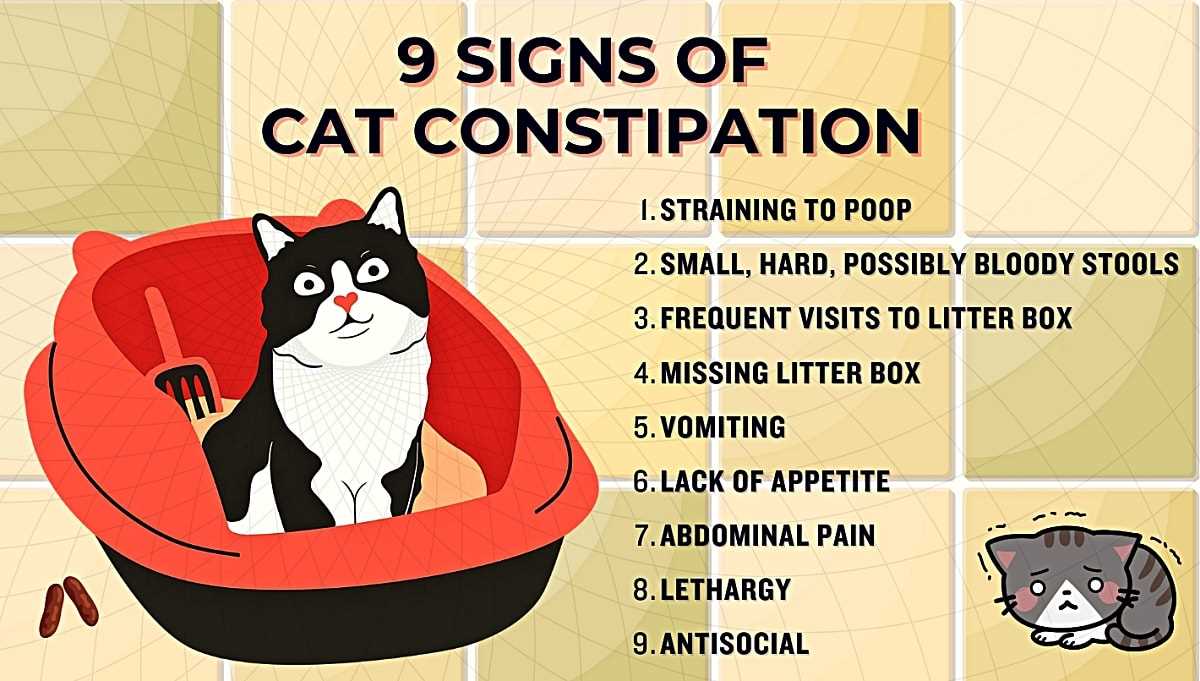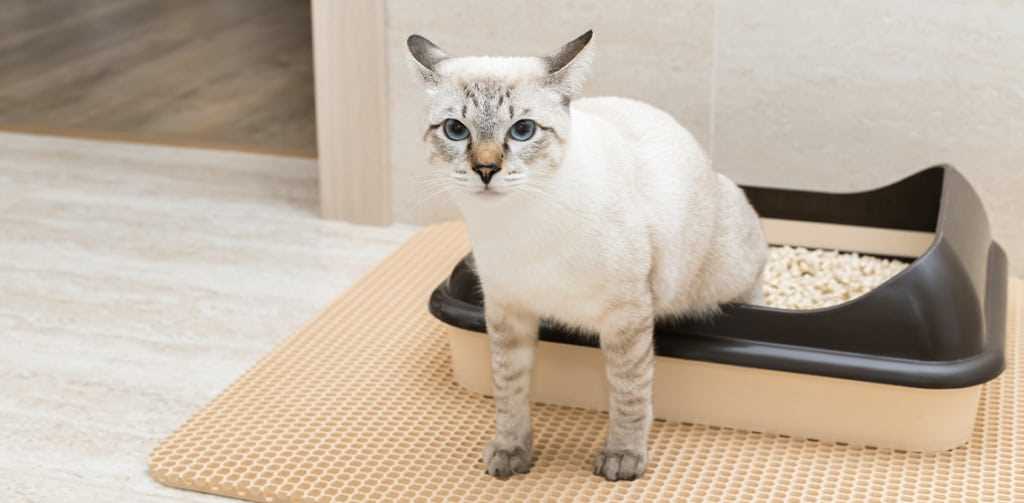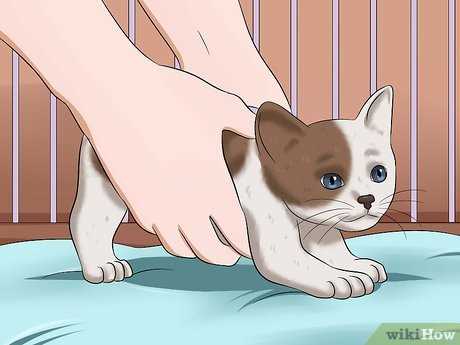



Adding a teaspoon of canned pumpkin to your feline’s meals can work wonders for their digestive system. This natural source of fiber not only helps regulate bowel movements but also makes meals more appealing.
Consider integrating a small amount of olive oil or coconut oil into their diet. These oils can lubricate the digestive tract, promoting smoother elimination. Just a few drops mixed into their food might do the trick.
Hydration plays a significant role in maintaining proper digestive function. Ensure fresh water is always available. In some cases, providing wet food can help increase fluid intake, which is beneficial for overall health and bowel regularity.
Keep an eye on your furry companion’s activity level. Encouraging playtime will stimulate their natural instincts and can aid in digestive processes. Regular exercise is an important factor in keeping things moving along.
If your little friend continues to experience issues, consulting a veterinarian is crucial. They can offer tailored advice and, if necessary, recommend specialized diets or treatments.
What Can I Offer My Feline Friend for Regular Bowel Movements
Pumpkin puree is a fantastic option. A teaspoon mixed into meals can enhance fiber intake, promoting smoother digestion. Ensure it’s pure pumpkin, not spiced or sweetened varieties.
Another effective choice is a small amount of olive oil. Just a few drops mixed with food can lubricate the digestive tract, aiding in easier elimination.
Consider adding a fiber supplement specifically designed for pets. These products are often available at pet stores and can provide the necessary bulk to assist with regularity.
Hydration plays a key role too. Fresh water should always be available. Some felines prefer running water, so a pet fountain might encourage increased fluid intake.
Lastly, incorporating wet food into the diet can increase moisture and fiber, which may lead to improved bowel habits. Look for high-quality options with real meat and minimal fillers.
Understanding Your Feline’s Digestive System
To support healthy bowel movements, it’s crucial to grasp the intricacies of a feline’s digestive tract. This system includes the mouth, esophagus, stomach, small intestine, and large intestine, each playing a vital role in breaking down food and absorbing nutrients.
The stomach, for instance, uses acids and enzymes to digest food. Once processed, the mixture moves into the small intestine, where most nutrient absorption occurs. Here, enzymes from the pancreas and bile from the liver assist in breaking down fats, proteins, and carbohydrates.
Fiber’s Role in Digestion
Incorporating adequate fiber into the diet significantly enhances digestive health. Fiber promotes regularity by adding bulk to the stool, making it easier to pass. Many commercial diets include fiber sources, such as beet pulp or pumpkin, which can be beneficial.
Hydration and Its Impact
Water intake is another critical factor. Dehydration can lead to harder stools, making elimination difficult. Ensuring access to fresh water and considering wet food options can help maintain hydration levels. This simple adjustment can lead to smoother digestive processes and promote consistent bowel habits.
Foods That Promote Healthy Bowel Movements

Incorporating pumpkin into meals offers a natural source of fiber, which can aid regularity. Just a spoonful mixed with regular food works wonders.
Another great option is cooked sweet potatoes. These are not only tasty but also packed with nutrients and fiber, encouraging smooth digestion.
Consider adding cooked chicken or turkey to the diet. These lean proteins are easy to digest and can help stimulate bowel movements.
Plain yogurt can be beneficial as well. It contains probiotics that support gut health, which in turn can improve digestion.
Wheat bran is a fantastic fiber source that can be sprinkled on food. This addition can significantly enhance digestive health.
Make sure to always provide fresh water. Hydration is key for maintaining healthy bowel function.
For those seeking an added benefit for air quality in your home, check out this air purifier for cats. A clean environment supports overall well-being, including digestive health.
Hydration Tips to Encourage Regularity
Always ensure fresh water is available. A clean bowl filled with cool water each day helps maintain hydration levels. Consider using a water fountain; many felines are attracted to running water, which can encourage drinking.
Incorporate wet foods into meals. These options provide additional moisture, supporting digestive health and regular elimination. Look for high-quality canned varieties that include real meat and minimal fillers.
Flavor Enhancements
Add low-sodium broth to dry food or serve as a standalone treat. This not only boosts hydration but also tempts a picky eater to consume more fluids. Just ensure the broth is free from onions and garlic, which can be harmful.
Monitoring and Adjusting
Observe water intake and adjust accordingly. If your furry friend seems reluctant to drink, experiment with different bowls or locations. Some prefer shallow dishes, while others may like deeper ones. Regularly clean their water station to avoid any odors that might deter drinking.
Always consult a veterinarian if hydration issues persist. Understanding specific needs will ensure optimal health and comfort.
Over-the-Counter Remedies for Constipation

For quick relief, consider using a fiber supplement like psyllium husk or canned pumpkin. These products help soften the stool and promote easier elimination. A dose of 1 teaspoon mixed with food can be effective.
Additionally, lubricant options such as mineral oil can be beneficial. Administering 1 teaspoon directly or mixed with food can ease passage. Avoid using it regularly, as it may interfere with nutrient absorption.
Lactulose syrup is another option. This medication draws water into the intestines, making stool softer and easier to pass. Dosage varies, so consult a veterinarian for the right amount.
| Remedy | Dosage | Notes |
|---|---|---|
| Psyllium Husk | 1 teaspoon | Mix with food. |
| Mineral Oil | 1 teaspoon | Use sparingly. |
| Lactulose Syrup | Consult vet | Draws water into intestines. |
Regular monitoring is essential after introducing any new product. If issues persist, professional advice is crucial. Always consider the health impact of over-the-counter solutions, and keep an eye on hydration. For cleaning up any accidents, check out the best enzyme cleaner for washing machine drain.
When to Consult a Veterinarian
If my digestive system isn’t functioning properly for more than 24 hours, it’s time to see a vet. Signs like persistent straining, vomiting, or lethargy should not be ignored. A quick check can rule out serious health issues.
Signs of Serious Problems
Look for any abdominal swelling, blood in the stool, or a noticeable decrease in appetite. These indications could signal a more severe condition requiring immediate veterinary attention. Don’t wait for symptoms to worsen.
Underlying Health Conditions

Medical issues such as dehydration, kidney problems, or thyroid disorders can contribute to constipation. A vet can perform tests to identify any underlying health concerns that may need treatment. Regular check-ups help maintain overall well-being.
Prioritizing health is key. Seeking professional help when in doubt ensures the best care and prevents complications down the line.
Preventive Measures for Future Digestive Issues
Regular veterinary check-ups are essential for maintaining optimal health. Ensure routine visits to monitor weight and overall condition, as this can help catch potential problems early.
- Introduce a balanced diet rich in fiber. Options include high-quality cat food, and consider incorporating vegetables like pumpkin or carrots.
- Encourage daily exercise. Playtime with toys keeps the body active and may enhance digestion.
- Ensure consistent access to fresh water. Hydration supports healthy bowel function.
- Monitor litter box habits. Tracking frequency and consistency can provide insight into digestive health.
- Limit stress. Create a calm environment to reduce anxiety, which can affect overall health.
Consider adding probiotics to the diet. These beneficial bacteria support gut health and may improve digestion.
- Gradually transition to new foods to prevent digestive upset.
- Avoid feeding dairy products, which many felines cannot digest properly.
- Keep human food away as certain items can cause gastrointestinal issues.
By taking these steps, maintaining a healthy lifestyle becomes achievable, promoting well-being and preventing future discomfort.









